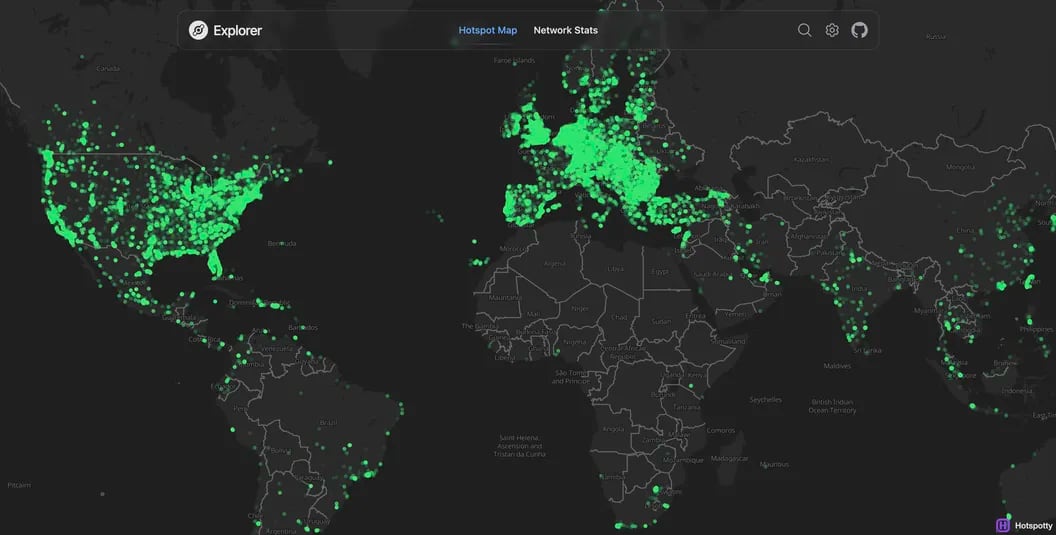
DePIN: A New Frontier for Small Business Growth in Emerging Economies
Exploring how decentralized physical infrastructure networks (DePIN) can transform small businesses and economic development in emerging markets.
DePIN: A New Frontier for Small Business Growth in Emerging Economies
DePIN deserves the recognition it receives. Projects in this domain are developing technologies aimed at transforming the traditional cloud computing model while providing economic incentives for users to support the networks. This could lay the groundwork for innovative economic growth models.
The decentralization of cloud computing is forming a two-sided marketplace. Node networks, which are the backbone of DePIN projects, offer users the opportunity to own portions of the network efficiently and securely.
 A map showing distribution of Helium nodes
A map showing distribution of Helium nodes
Physical assets like telecommunications infrastructure and video streaming networks can be distributed among node owners, allowing them to profit while users pay for access to a network that benefits many rather than being controlled by a few.
It’s essential to recognize the role of node operators in bolstering local economies and innovation. DePIN networks might enable small-scale entrepreneurs to thrive. For instance, Helium’s network is being used for tracking livestock in Africa, which helps protect endangered species and supports farmers’ livelihoods. Helium CEO Abhay Kumar remarked, “The cow in this case, or the livestock in this case, is sort of the center of the economy for this community.”
This trend highlights how DePIN fosters local innovation. Emerging markets often face unreliable or nonexistent physical infrastructure, making them prime candidates for adopting decentralized nodes. Such setups can resemble small business operations, akin to running a market stall or bicycle repair shop.
DePIN is not merely a crypto novelty; it represents a genuine small business opportunity for node operators. As technology fosters faster adoption rates in these regions, localized innovations are surfacing, bypassing conventional banking systems in favor of mobile solutions.
For example, individuals in Bangladesh might sell cloud storage to local businesses seeking reliable internet services, allowing them to earn a living. This scenario suggests a win-win for everyone involved.
What Does the Future Hold?
Most importantly, DePIN technology will pave the way for fresh business models that larger companies cannot replicate. It will help drive local entrepreneurship while enhancing services like education, healthcare, and gaming.
Operating local nodes can empower individuals to invest in their communities. As these technologies evolve, they will shape the future of business models globally, especially in emerging markets, potentially leading to significant transformations in how decentralized networks function.
This gradual yet formidable change in infrastructure ownership through the DePIN model could herald a broader economic development movement that transcends geographical boundaries.


